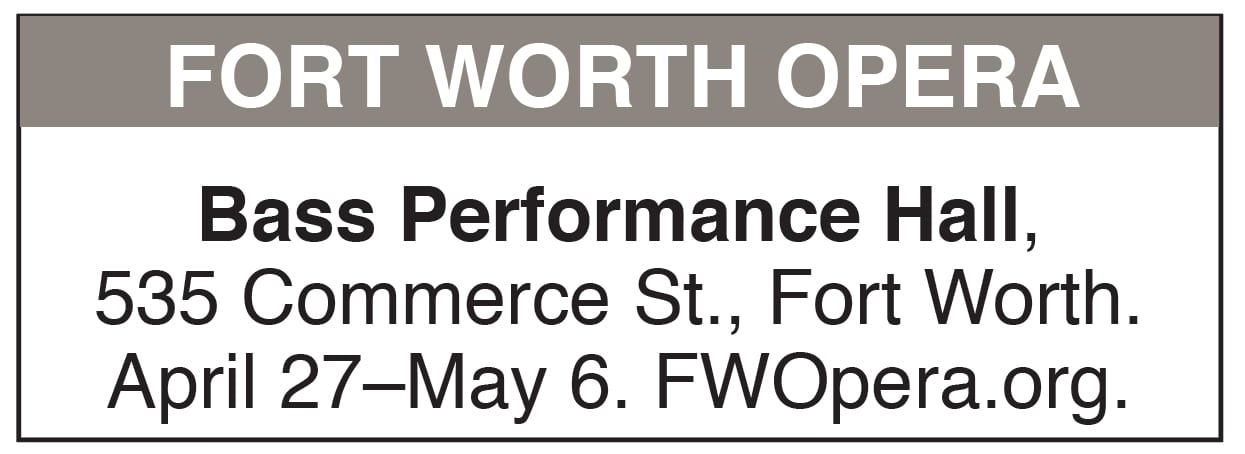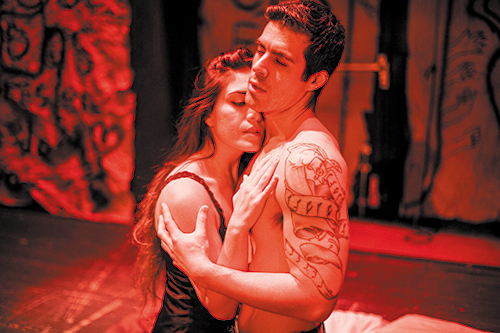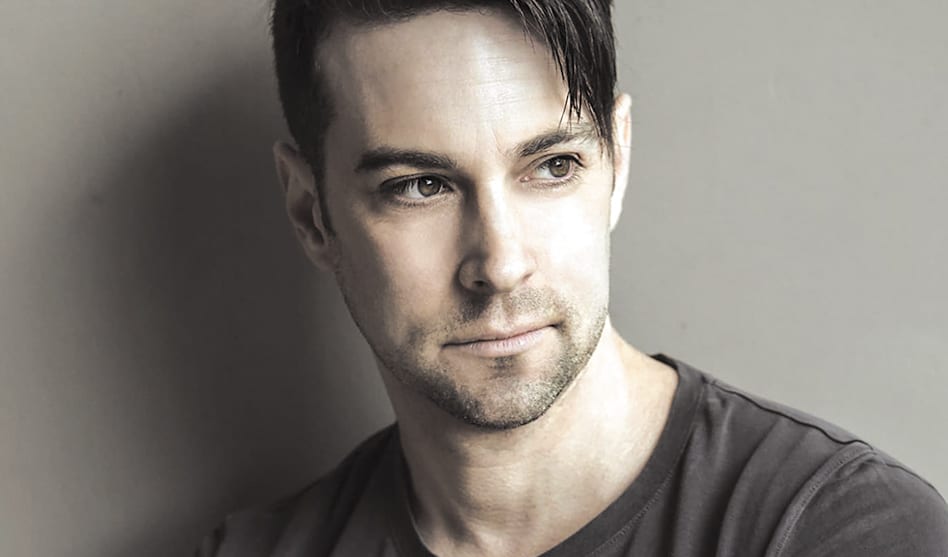John de los Santos revisits the tango opera ‘Maria de Buenos Aires,’and returns to the Fort Worth Opera where it all began for him
ARNOLD WAYNE JONES | Executive Editor
jones@dallasvoice.com

John de los Santos had already spent years as an actor, dancer and choreographer in plays and musicals before getting his first exposure, at age 23, to the world of opera, when Fort Worth Opera asked him to choreograph a production for them. It would not be the last — in fact, in the intervening years, his opera portfolio has both spread and deepened.
But even he had not heard of the 1968 operetta Maria de Buenos Aires, or even its composer Astor Piazzolla, until he was tapped by the Lexington (Ky.) Philharmonic to direct it in 2012.
“I didn’t have a lot of time — four days to get the show [on its feet], to direct it, choreograph it, design it and dance in it,” de los Santos recounts. “I just immersed myself in it.”
It wasn’t the ideal way to approach a new work. “If anyone offered me [that job] in that amount of time today, I would say no,. but I was young and eager,” he says. But good show business stories are all about second chances.
And sometimes third and fourth.
Later this month, de los Santos returns to Bass Performance Hall, the birthplace of his association with opera and home base of the FWO, to stage — for the third time — the opening night production of the FWO Festival, Maria de Buenos Aires, a woozy, surrealistic “tango operita,” as Piazzolla called it. The second time was only months ago, when, with an entirely different cast, de los Santos mounted the production for the San Diego Opera. And he’ll get a fourth bite at the apple early next year, when the Arizona Opera will have him back for its season opener.
It’s not all that uncommon for opera companies to team up to produce an opera and spread around costs. But it is a rare opportunity for de los Santos to be able to revisit a show that didn’t get the full treatment on his first go-round.

A scene from Maria de Buenos Aires which opens the Fort Worth Opera Festival April 27.
“In Lexington, we did it in a warehouse, it was already cast [when I began directing] and there wasn’t a lot of time or money,” he says. “I had a lot of ideas, but we did it so quickly there wasn’t a lot of time to flesh it out. But we all learned the piece and the ideas. Now, it’s fully realized. It’s a six year gestation period for this piece.”
The opera itself is unusual — more about moods and emotions than a fixed plot, all set to the intoxicating rhythms of tango. The central figure, Maria, was born in the slums of Argentina and turns her back on her old life, only to meet with cruelty and sadness on the streets of the city and end up a prostitute. Maria encounters two negative forces — El Payador, and El Duende, a goblin-like creature.
The conductor for the FWO production, as well as the mezzo (Solange Merdinian) and the baritone (Luis Orozco), all worked with de los Santos in Lexington, but he implemented one major change for the new versions: El Duende is played by a woman — in this case, Emmy-winning Latina broadcaster Gaby Natale.
“When [the three opera companies approached me about directing the production], I said, ‘I want to cast El Duende, who is always played by a man, with a woman.’ I have had nothing but positive feedback — I got nothing in response except, ‘What a great idea!’”
It wasn’t just a bit of stunt casting, either. De los Santos says, in light of the current cultural climate, it makes a strong statement about the treatment of women in society. But it also changes an important emphasis without altering any text.
“The piece deals with rape and prostitution and chauvinist with the villains [represented by El Payador and El Duende]. When you have these two male forces against this one female force [it seems very aggressive]. But when you have two women playing against one man, it changes the dynamic. The idea of a woman tapping into her femininity and masculinity was something I wanted to play into,” he says.
“It’s a piece about a horrible situation a woman is put through, and it needs to be examined a little bit closer. It has definitely illuminated things in a new way — bringing darkness to the fore. I think a lot of people think Maria is a great tango opera, but without depth. But the idea of a woman surviving is very deep to me.”
In many ways, the bigger risk for de los Santos was in tapping Natale for the role. She had never performed onstage before, certainly not in an opera. (El Duende is a non-singing part, although she speaks in a poetic rhythm.)
“I spoke with Gaby for a long time and convinced her to do it. The authenticity she brings to it is mind-blowing because the poetry is in her blood — she’s from Argentina, and it’s her heritage.”
It was not, however, in de los Santos’, despite his Latin roots. He was not familiar with Piazzolla — the foremost composer of what has been called neuvo tango — or tango music in general. Now, he’s obsessed with it.
“I liked tango dancing, but this was my first foray into his music, and now I’m a huge fan,” he says.
A lot of other people are learning about it as well. Maria de Buenos Aires was not widely performed prior to a few years ago, when many opera companies began a concerted effort to extend their outreach to Spanish-speaking communities. And there simply are not as many operas written in Spanish as in other romance languages.
“Companies are trying to draw in Latino audiences — it’s an under-represented [segment]. There are a lot of great Spanish and Latin composers, and we’re trying to encourage more exposure to them. You hear this and think this is tango?”
And this one, de los Santos thinks, is a perfect entree for newcomers.
“I say that this is the opera for people who don’t know if they like opera,” he says. “It’s only 90 minutes long, it has dances and pretty sets. It’s not so much a formal opera as a song cycle, a cabaret, a tango suite. It has sexy people in it. It’s short. You go home and tango horizontally afterward!”
Maria de Buenos Aires kicks off the Fort Worth Opera Festival, April 27, with a subsequent performance on May 5. In addition, the FWO stages Donizetti’s comic opera Don Pasquale (April 28, may 4) and Brief Encounters, three short operas about love (April 29–May 1). Visit FWOpera.org.









